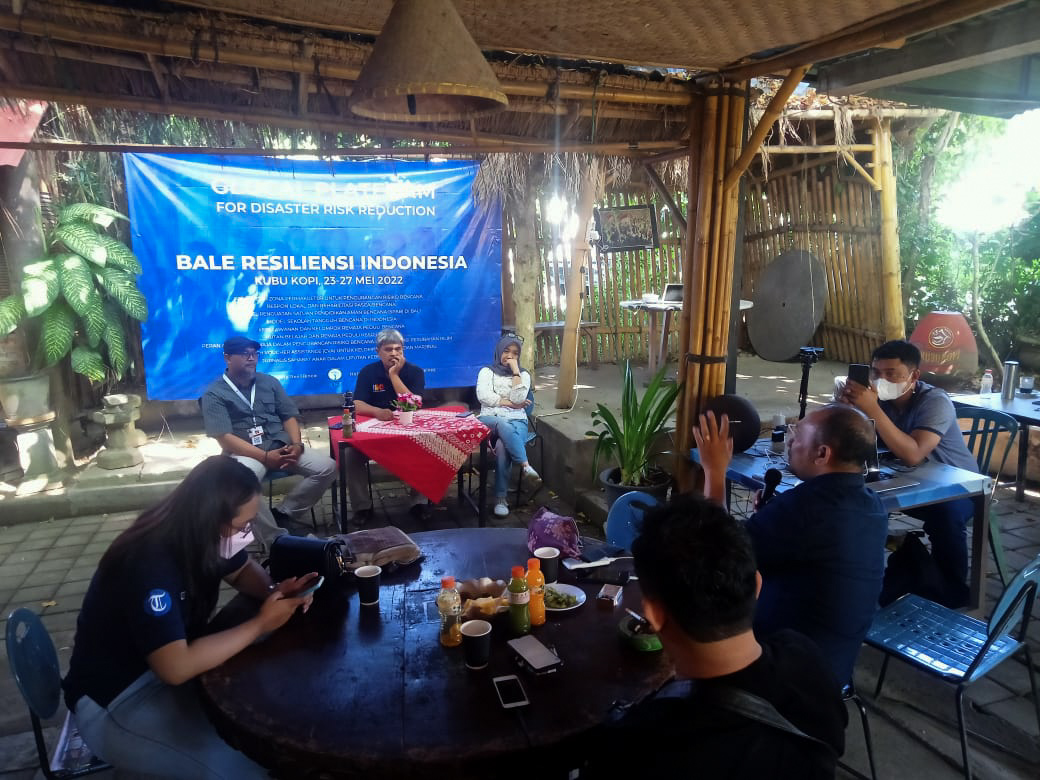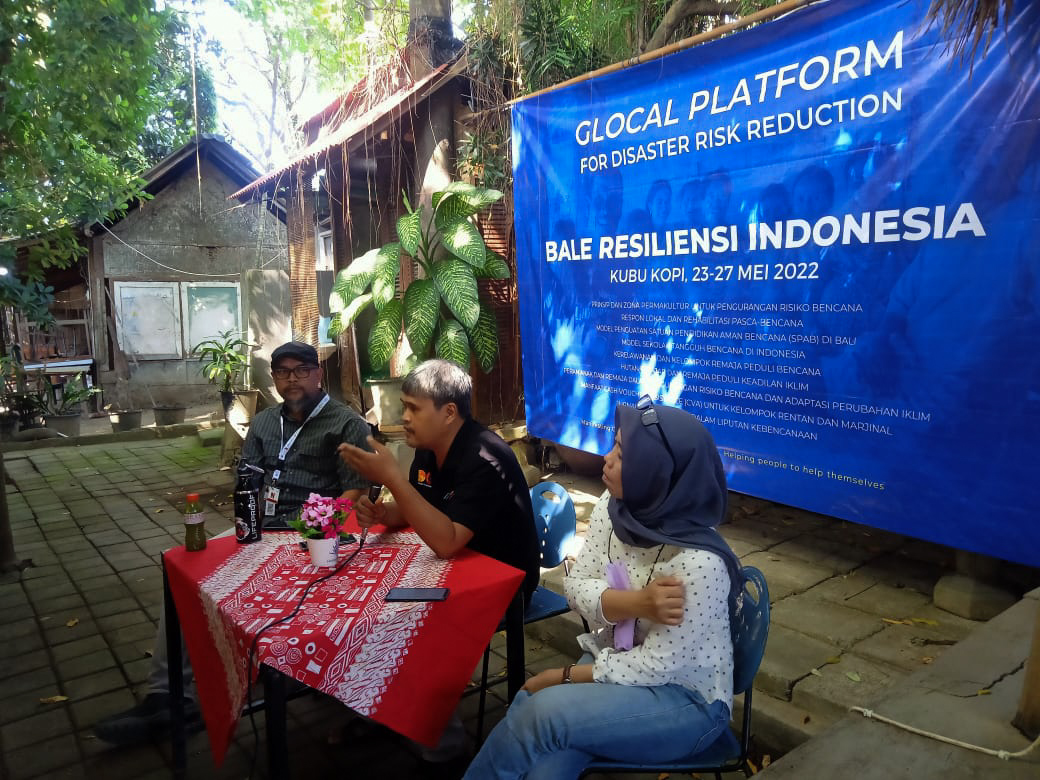Bale Resiliensi Indonesia: Local-Global Platform for Disaster Risk Reduction
Although the development of the world is getting faster and more sophisticated, the occurrence of disasters is increasing day by day and is unavoidable. In fact, the years 2010-2020 are referred to as a decade full of disasters in a report published by Katadata. According to a report by the National Disaster Management Agency (BNPB), the trend of annual occurrences of disasters in Indonesia tends to increase. From 2010-2020, the highest annual number of disasters occurred in 2019, at 3,814. Disasters that hit Indonesia are generally caused by hydrometeorology. Floods, landslides, and cyclones have dominated the natural disasters that have occurred over the past decade.

Press conference and discussion in Kubu Kopi, Denpasar, Monday, May 23, 2022
A year later, BNPB even noted that throughout 2021 from January 1 to December 28, 2021, natural disasters that occurred in Indonesia reached 3,058 incidents. Floods dominate natural disasters that hit almost all parts of Indonesia, running 1,288 events or 42.1%. In addition to floods, extreme weather is a natural disaster that happens a lot in Indonesia, with 791 incidents. Then, 623 natural disasters that hit Indonesia this year were landslides. Indonesia also experienced natural disasters in the form of forest and land fires (karhutla) throughout this year, reaching 265 incidents. Other natural disasters that hit Indonesia include tidal waves and abrasion as many as 44 events, earthquakes 31 events, drought 15 events, and volcanic eruptions one incident.
The COVID-19 pandemic, which has not ended since it emerged in early 2020, also adds to the long list of catastrophic events. The impact of the pandemic is more massive and systemic because it affects almost all aspects of life globally.
The victims here are not only humans but also nature. The number of victims is clearly visible and the same in the disaster pattern described above. In many cases, this pattern makes the human ability to recover and become resilient even more difficult. In other words, humans are becoming more and more vulnerable. In such a situation, despite the continuous improvement, our capacity and disaster management system are still not sufficiently qualified to form community disaster preparedness, either before, during, or after a disaster occurs.
The seventh Global Platform for Disaster Risk Reduction (GP-DRR) in 2022 has Indonesia as the host. This international scale event which took place from May 23-28 and is located in Nusa Dua Bali, is expected to be attended by no less than 4,000 participants, both from institutions and individuals. BNPB has prepared the GP-DRR schedule and materials as the joint organizer of UN-DRR.
Many stakeholders are optimistic that implementing this global activity will impact the strengthening of Indonesia's capacity and disaster management system. GP-DRR has become a space to share good disaster management practices in many countries worldwide.
The strategy of this activity has encouraged many parties, especially local civil society groups who have been active in disaster management in Indonesia, to participate more actively in it. At the very least, the space provided by GP-DRR can be a forum for community groups to share experiences, challenges, good practices, suggestions, and criticisms related to disaster management in Indonesia and within its regional scope.
As an organization that has focused on realizing community resilience since 2000, IDEP Foundation (IDEP) is committed to bridging the voices of the community at the local level, especially for those with limited or no access to participate in forums.

Discussion about risk and resilience locally
For this reason, IDEP then seeks to present the concept of Bale Resiliensi Indonesia: Global-Local Platform for Disaster Risk Reduction as a choice for disaster management actors, whether they come from local, national, or regional organizations as well as globally who are gathering in Nusa Dua-Bali in the context of GP-DRR. Bale Resiliensi Indonesia is expected to become a global platform (global and local at the same time) to share experiences, challenges, models and good practices, suggestions, and criticism related to disaster management. Thus, not a single voice is left to be heard and discussed, and in the end, it becomes a trigger for collaboration for efforts to reduce disaster risk for humans and nature.
Bale Resiliensi Indonesia was held in Kubu Kopi, Denpasar, Bali--outside the GP-DRR location in Nusa Dua--to reach a wider community group. Not only that but this activity will also be disseminated online through IDEP's social media. (Ed)
Subscribe to IDEP Newsletters
Give a gift that will change lives. 100% funds charity projects.
|






